This is a listing of ideas, links and media references I find interesting or compelling about climate change.
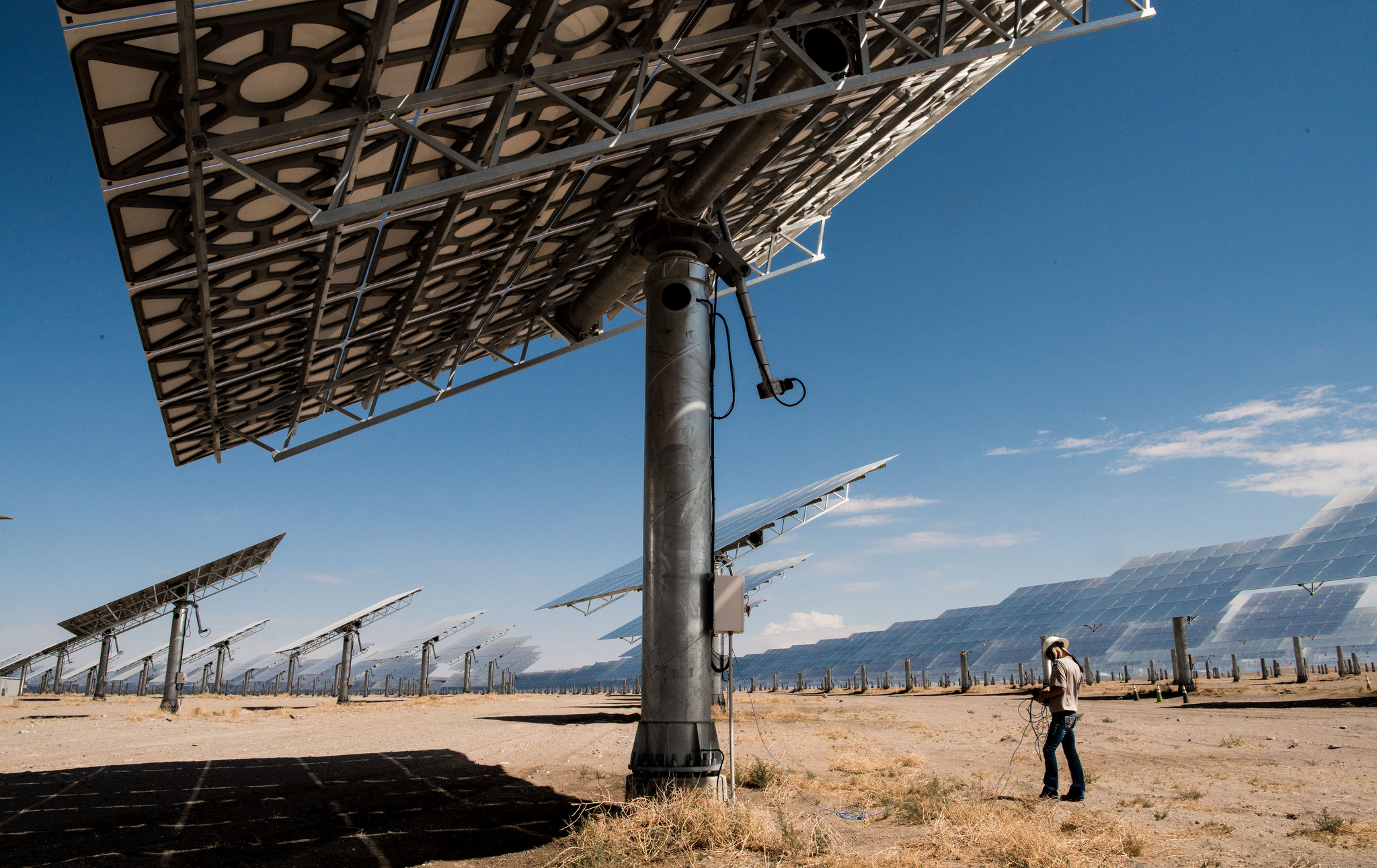
There are no doubt many, many important items missing from the list — climate change is a vast subject and this isn't supposed to be comprehensive. It's mainly a place for me to put things I find interesting so they can be referenced later, and hopefully others find it useful too.
An item's inclusion or exclusion is not a reflection of my opinion on it's importance. The items are grouped loosely under headings, but otherwise the list is not in any particular order. The list will likely expand over time.
Explainers
The Brutal Logic of Climate Change
The true scale and urgency of climate change often gets lost in science-speak, but it is essential to understanding the need for immediate action. David Roberts is one of the writers bringing the reality to a general audience and making it plain and engaging to read.
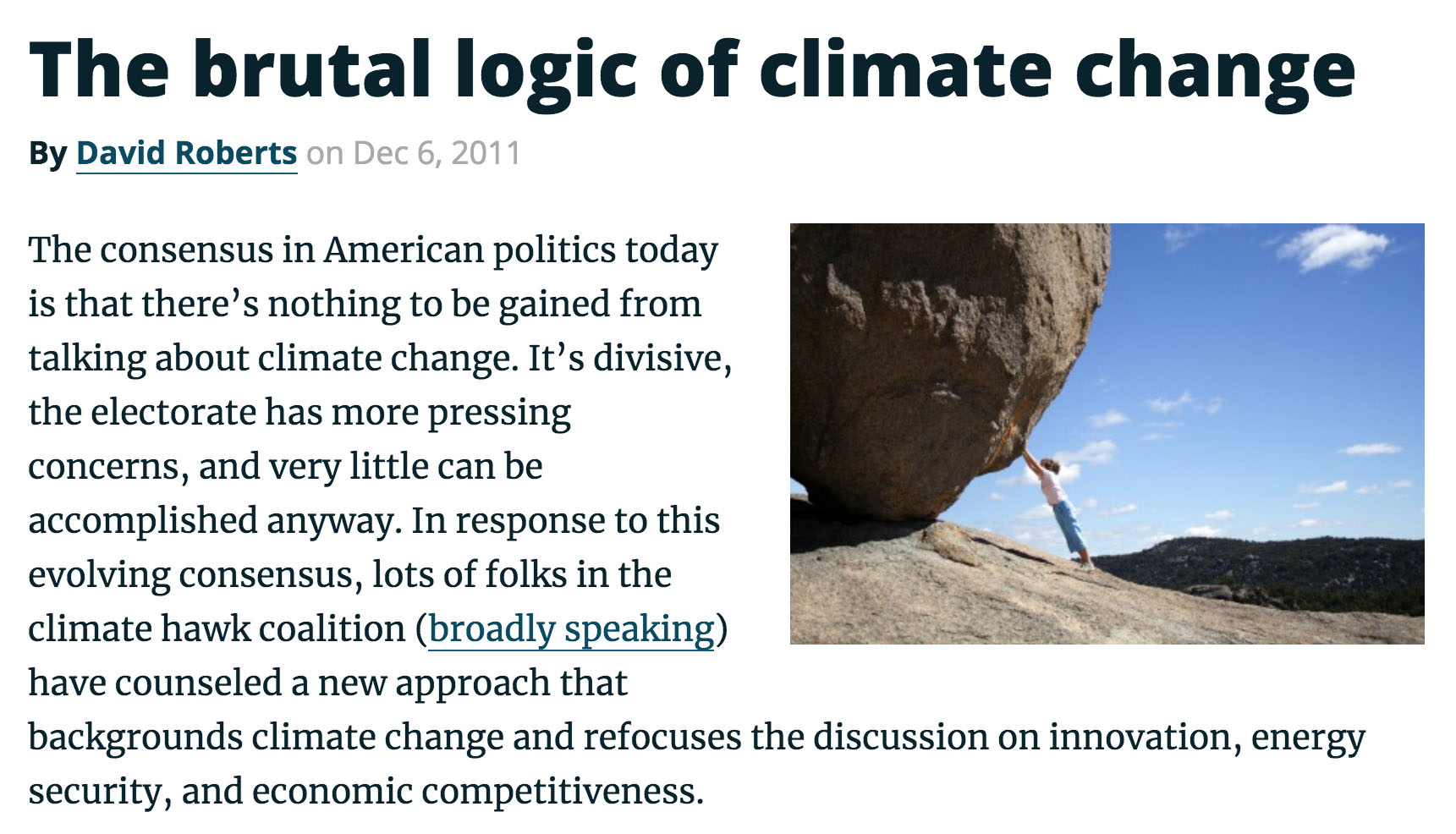
When you are done reading that, keep going. There are three follow-ups.
- The Brutal Logic of Climate Change Mitigation
- Yikes: Avoiding Dangerous Climate Change Is Still Possible, But Just Barely
- Freaked-out Climate Scientists Urge Other Freaked-out Climate Scientists To Speak Up, Fight Man.
The New Abolitionism
A piece by Chris Hayes of MSNBC on the financial blockers to climate change. Illustrates the scale of the issue by comparing it to the societal and financial implications of the US abolition of slavery the in the 19th Century.
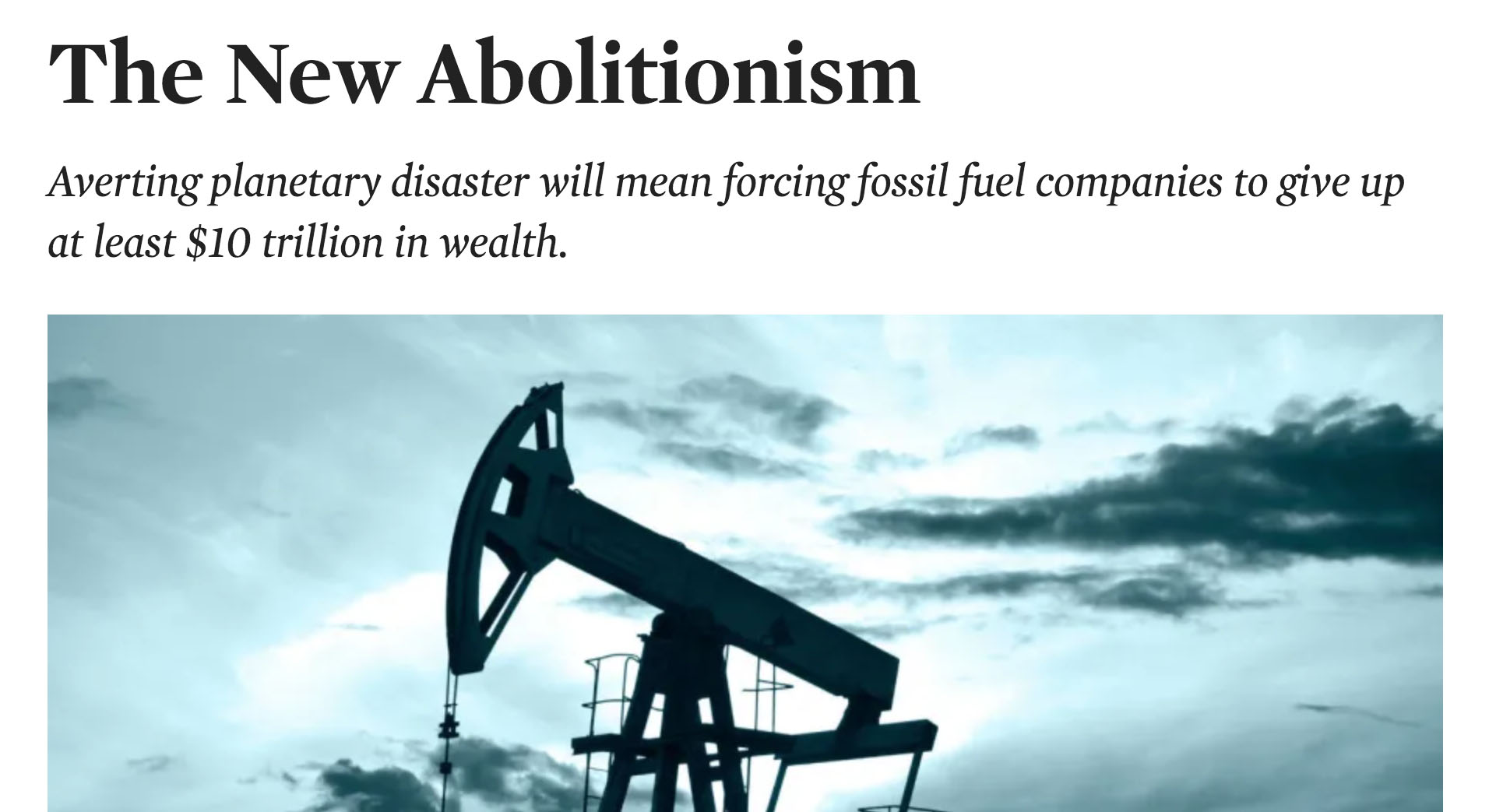
"Averting planetary disaster will mean forcing fossil fuel companies to give up at least $10 trillion in wealth."
The Uninhabitable Earth
Flowery-language article warning of those effects of climate change which don't figure concretely in the general public imagination of what climate change means. Touches on ideas around food security, disease, direct heat exposure, air quality, war, and economic collapse, and more.
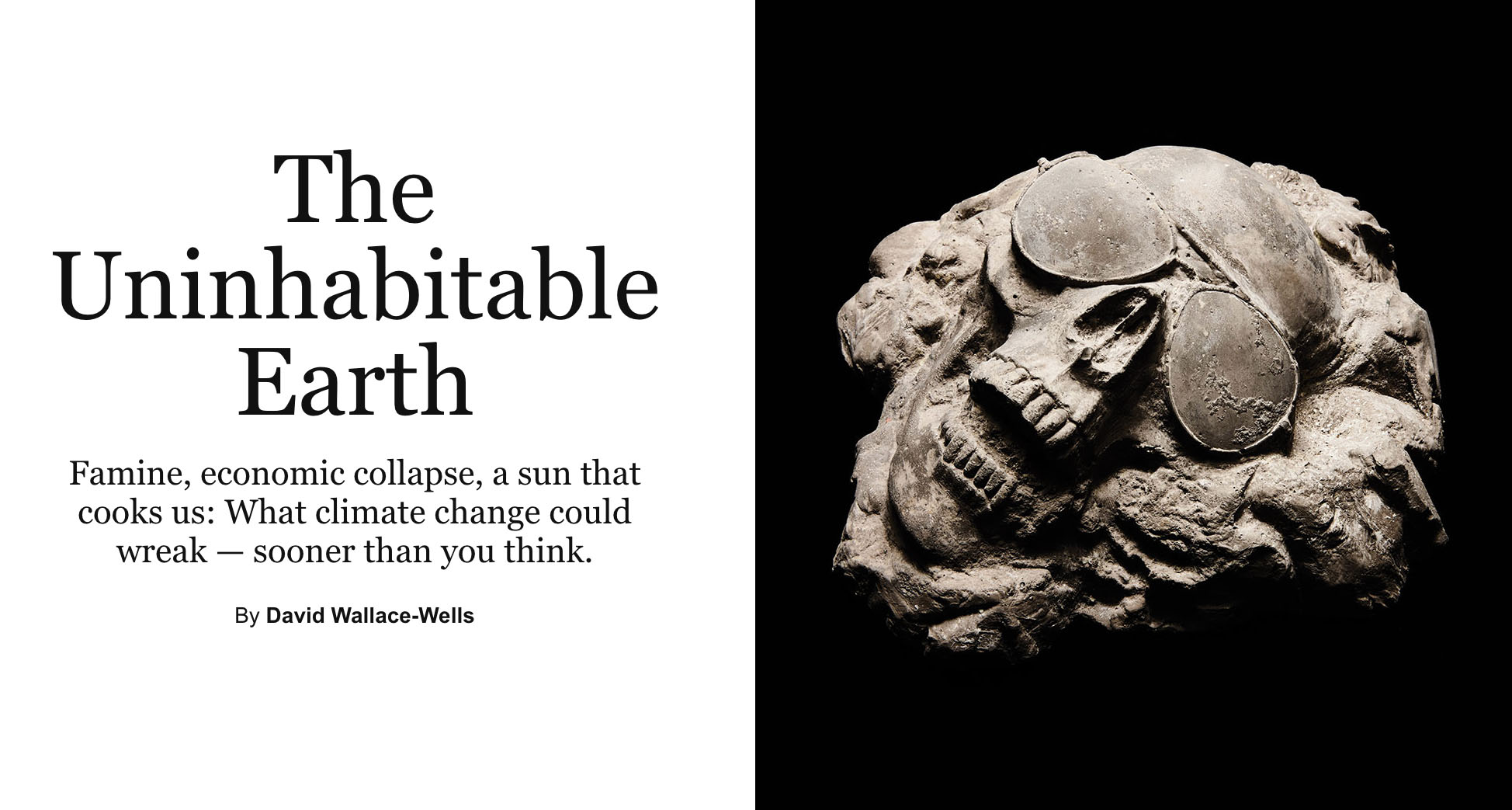
The article came under fire from some environmentalists for being too scary, which turns people away. Margaret Klein Salamon discusses the article, it's controversy, and comes to its defense in her blog.
What can a technologist do about climate change?
I'm a technologist, so this caught my eye. This is a personal view from the ex-Apple designer & developer Bret Victor.
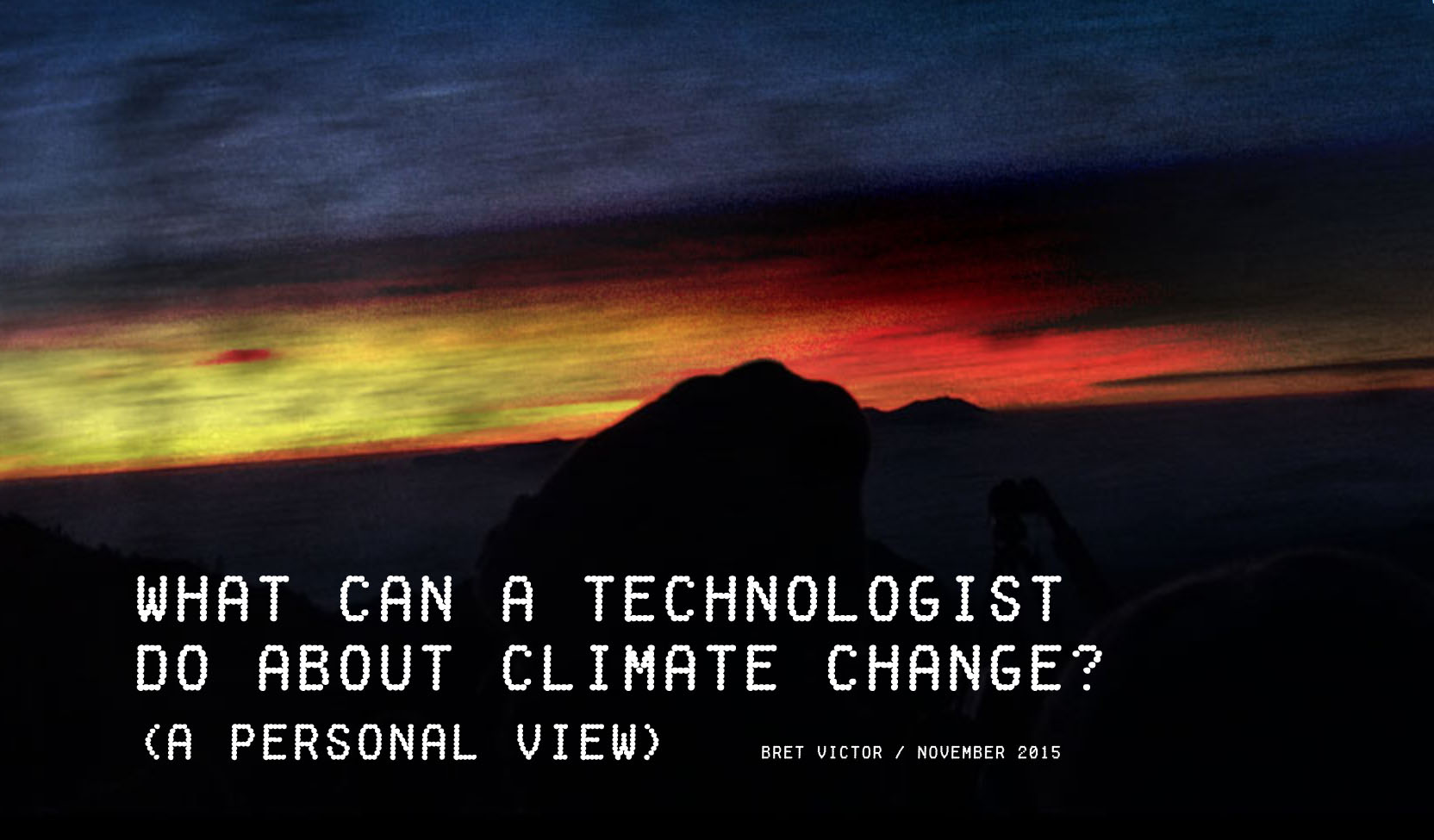
Contains fantastic graphics and reasoned explanations, and has a great bit about the scale of the problem and possible solutions before going into the technologist part.
Short Answers to Hard Questions About Climate Change
A great entry point for the unaware newcomer, or for someone who feels confused by competing accounts of what's going on.

Like many above, this is framed in a way that illustrates the scale, but trades detail for brevity and quick accessibility. Covers a lot of ground very quickly, leaving it to you to dig further when you are done.
Mainstream Media with Strong Climate Coverage
A lot of news desks have cut their dedicated climate coverage as the industry contracts. Despite fluctuating levels of investment across the industry, some are doing a good job.
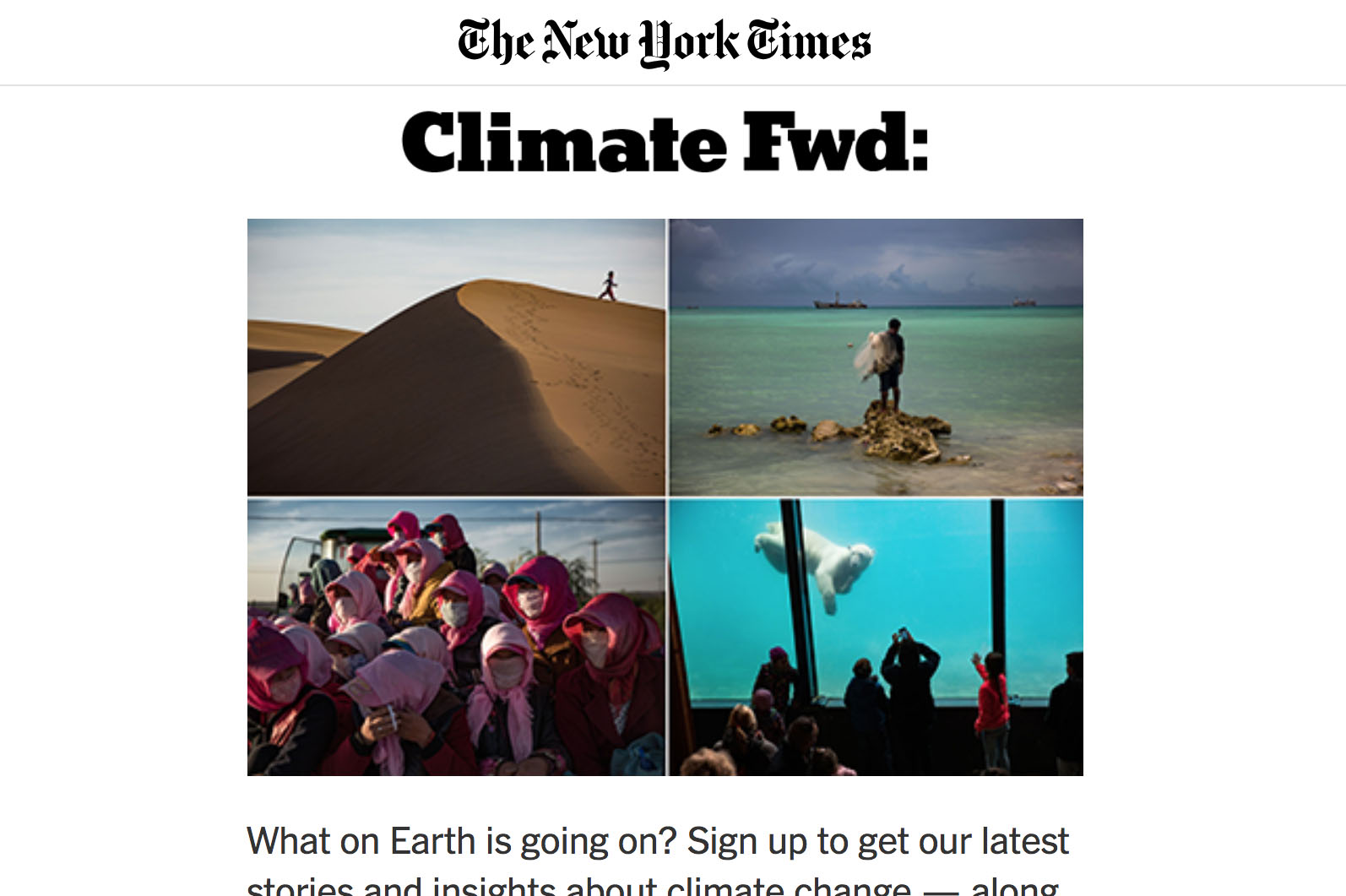
Here's some notable examples of good coverage in mainstream outlets: The New York Times Climate Fwd newsletters, and The Guardian's climate change section. There's also the Pulitzer Prize-winning Inside Climate News.
Approaches & Perspectives
The Climate Psychologist
Margaret Klein Salamon, a clinical psychologist fascinated by the discrepancy between climate reality and climate awareness and psychology, ultimately decided to use her skills to try to build a reality-based movement called The Climate Mobilization.

They advocate that we actually restructure the economy and society in a way that actually stands a chance of saving civilization. Read Margaret's blog on climate psychology here.
DrawDown
Described as "the most comprehensive plan ever proposed to reverse global warming," prepared by a global "coalition of leading researchers, scientists and policymakers." It's basically a list of ways to address global warming, ranked by order of positive impact, as calculated by an array of leading academics.
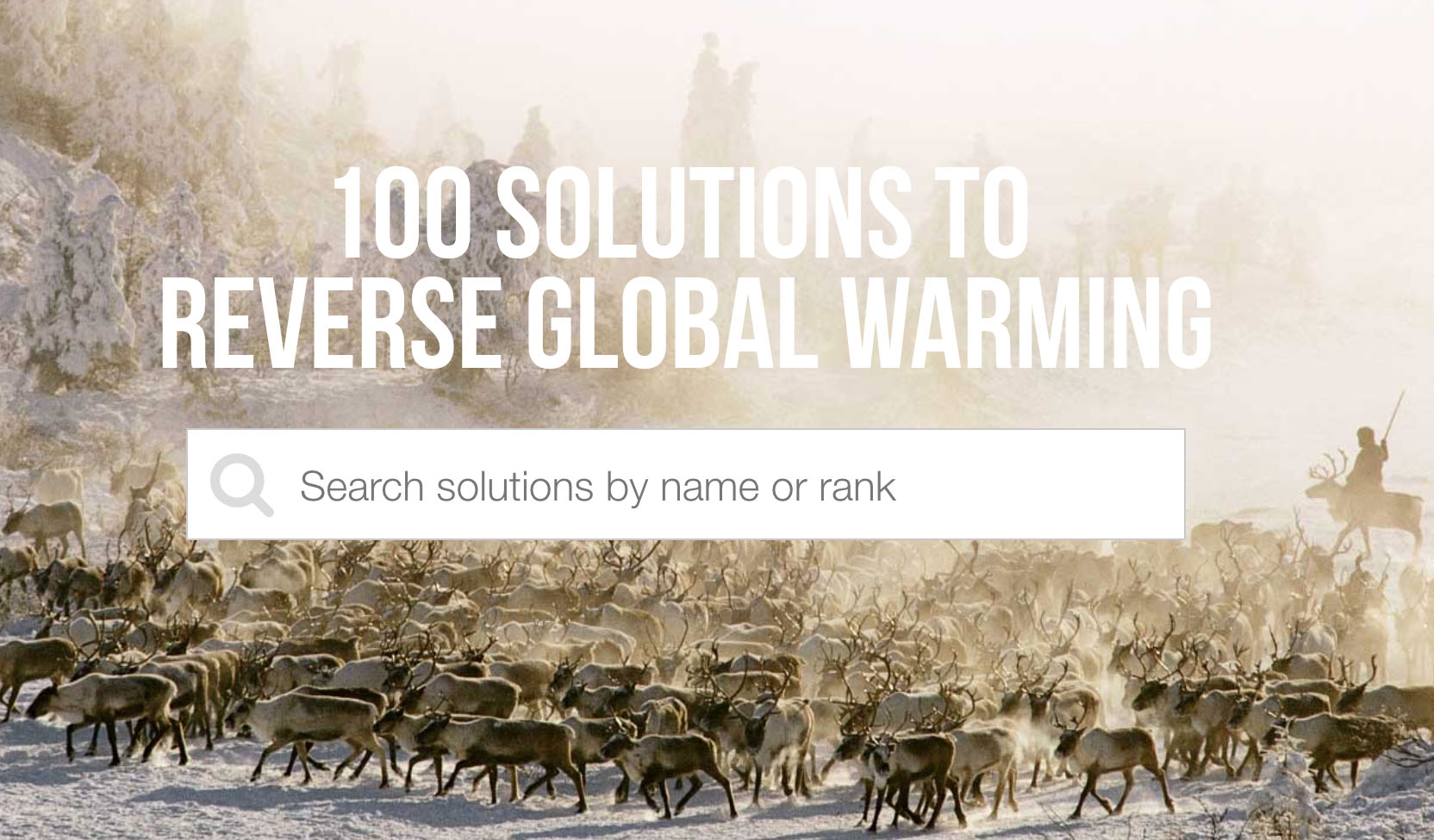
Watch Paul Hawken describe it in this presentation on YouTube. It's a great video - Paul explains the origin of this project, who was involved in making assessments and why, and how they came to conclusions that surprised all of them.
Fossil Fuel Divestment
As Bill McKibben says "If it's wrong to wreck the climate, it's wrong to profit from that wreckage." I wrote about it in 2015.
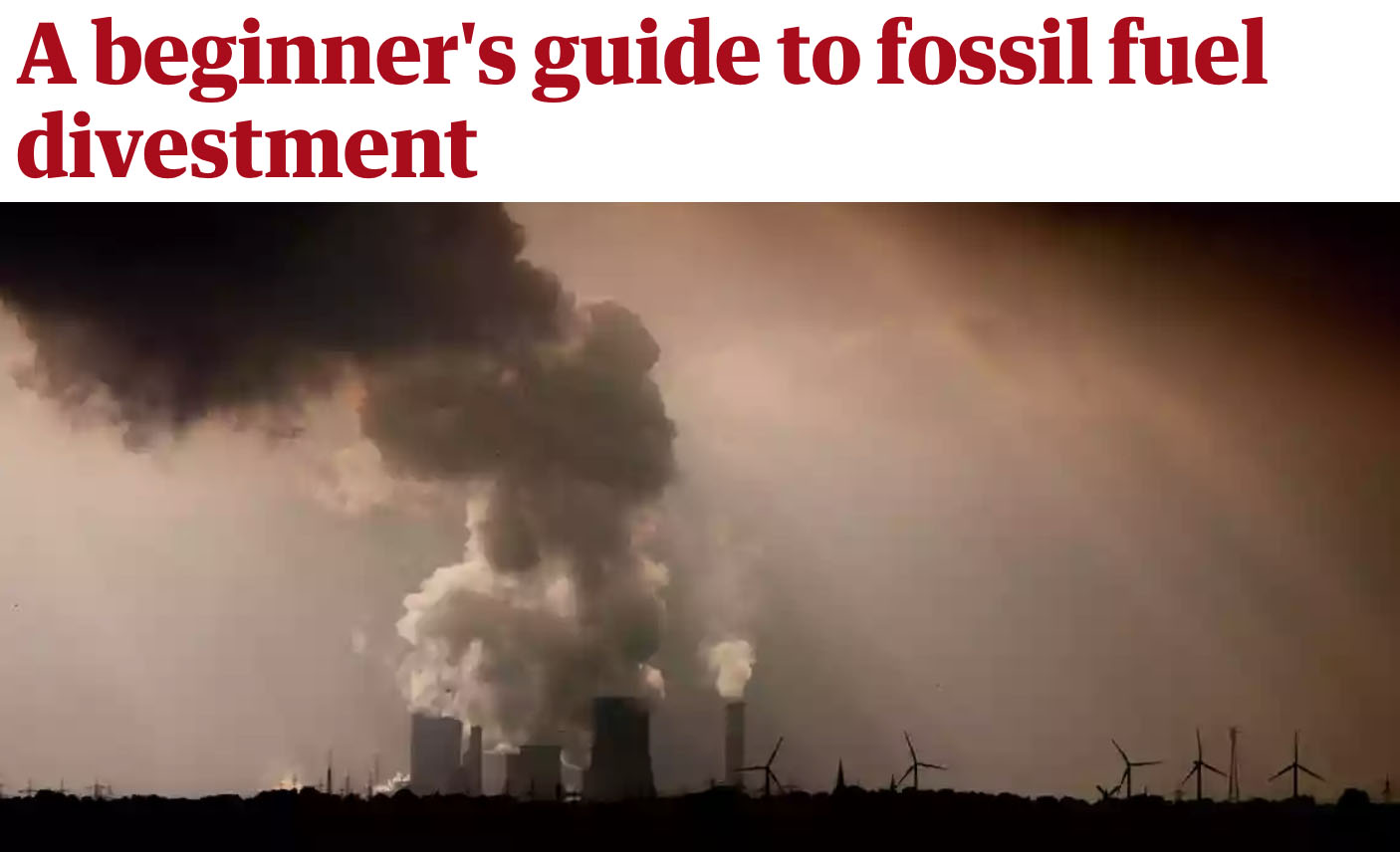
This global movement is about withdrawing stocks and bonds from companies involved in extracting fossil fuels. It's a social "delegitimization" tactic - the divestment itself won't significantly hurt the company's bottom line, but it aims to reshape the conversation and apply public pressure on politicians to act.
Communication
The Secret to Talking about Climate Change
Helpful little vignette. Actually contains some really solid general advice on how to be persuasive with others generally.
Also good because it's only four minutes long, and uses stick figures. Hint: it's about listening.
David Fenton
The fossil fuel industry invests heavily in advertising & focus groups, and really understands how to play the public relations game. Associating brands with existing virtues and values, connecting on the human level, and so forth.
By contrast, the climate movement under-invests in PR. Perhaps a little stereotypically, Fenton suggests that the climate movement is so full of academics and nerds that they think all they have to do is publish the data and people will understand.
This argument may be presented in somewhat over-simplistic terms, but I actually believe there are crucial hard truths here.
Connecting on Climate
Research-backed, accessible, thorough guides on what works and what doesn't when forming climate-related communications. This is more about shaping content than developing strategies, and I think that these results are subject to change as new political realities emerge based on social, economic and cultural changes.
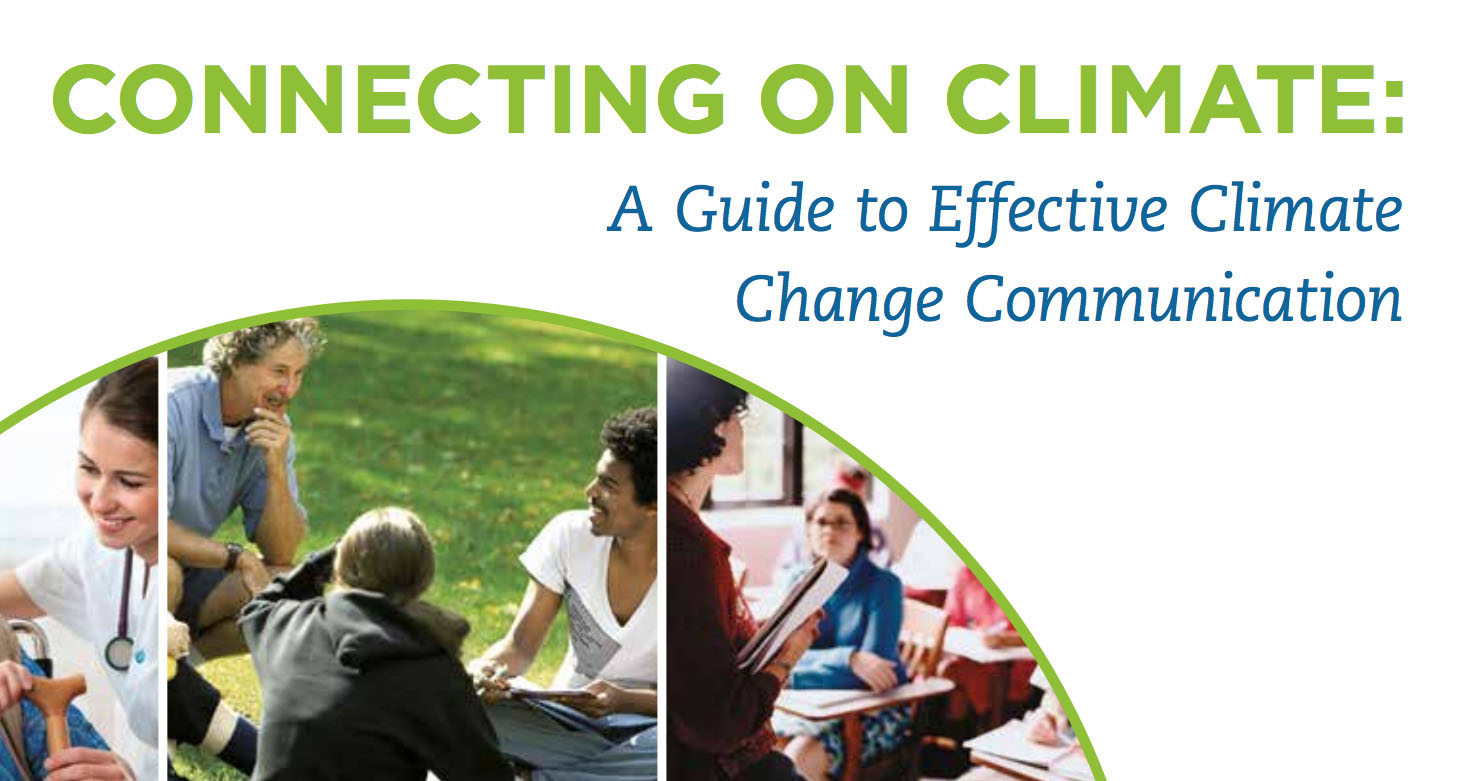
However for those looking to develop near-term support for ideas and movements this a valuable tool. An older version of the report is here, and the program's website is here.
People
Naomi Klein
Canadian author and activist, who wrote a "trilogy" of works linking corporatism, geopolitics & neoliberalism and climate change. Respectively, these books are: No Logo, The Shock Doctrine, This Changes Everything.
Klein also writes a lot of good articles. This Changes Everything is a really good overview of climate change and its relationship to capitalism.
Katharine Hayhoe
A Christian Evangelical climate scientist who evangelizes climate science and speaks openly about links to faith.
Seen here speaking with Don Cheadle in the ShowTime documentary series Years of Living Dangerously
Bill McKibben
An author and environmentalist whose 2012 article Global Warming's Terrifying New Math broke down the fundamental situation of climate change in 3 numbers. The article was widely credited for popularizing a new understanding of the urgency of climate change.
Here's a really accessible three minute video version of the article:
McKibben is co-founder of 350.org, a prolific author and frequent writer of great material for Rolling Stone and others. He also initiated the fossil fuel divestment movement - read here some interesting analysis about the results his tactics have achieved.
Cultural Responses
I Want a Better Catastrophe
Andrew Boyd is a comedian, author, and activist currently writing a book on how "leading thinkers and everyday folks alike are grappling with the 'impossible news' of our climate doom".
Watch him discuss the book, his writer's block, and conduct a public workshop in the video above. Read more about the project here.
Sandy Storyline
Filmmakers and storytellers telling untold stories of impacted communities from Hurricane Sandy, who have since broadened out to natural disasters across the US.

Storyline Media is their non-profit org, which takes the idea beyond Sandy and out to other disasters.
Dear Tomorrow
Platform for sharing of letters, photos and videos to future generations.

Read others, and submit your own.
The Dark Mountain Project
A British writing collective who argue that the "myth of civilization" is why we can't comprehend the scale of what's coming.

Progress is more or less unidirectional, according to this "myth", and all problems have solutions. They argue this is why we are so complacent in the face of imminent collapse.
Tools & Data
Guardian: Live Carbon Countdown
Live-time updated clock, showing how until we surpass our global 'carbon budget', locking in at least 2° of warmth. Estimates vary depending on calculation methodology. See here for an alternative estimate.

Working with a team over the summer of 2018 we used this as the basis for a project.
The Doomsday Clock
At the end of World War 2, atomic scientists were horrified that they had ushered in a new era in which humankind now had the capability to permanently wipe out civilization itself, something that had never existed before.
To help avoid that actual outcome, they set up a society of experts with deep knowledge of global affairs who come up with a consensus of how close the world is to "midnight", or civilizational collapse.
From 1947-2007 the only thing deemed capable of causing civilizational collapse was nuclear war. From 2007 they entered a new category — unchecked climate change.

Explanations for each of the decisions can be found on Wikipedia and the website.
Country-by-Country Energy Mix Analysis
Mark Jacobson, a Stanford engineering professor, believes the world can eliminate fossil fuels and rely on 100 percent renewable energy.

Following up on his state-by-state road map for the United States, he has now released data on plans for how 139 countries could wean themselves from coal, oil, natural gas, and nuclear power.
Yale Climate Communication
One of the best sources of research on public climate change knowledge, attitudes, policy preferences, and behavior, and the underlying psychological, cultural, and political factors that influence them.

They produce useful reports and artifacts like Six Americas and interactive opinion maps, and have a public engagement and radio program called Yale Climate Connections.
Resource Watch
An aggregation of datasets from multiple reliable sources, which you can overlay, fine-tune and assess in relation to each other from a website interface.

When you find data you want to investigate more thoroughly, you can download it and use it in your own apps. The key here is the search-ability, browse-ability and general simplification and aggregation of access for developers.
The project is explained in more detail here.
Climate Central
Independent organization of scientists and journalists researching and reporting climate facts, communicating to the public and decision-makers.

Here's a list of interesting-looking projects:
- Surging Seas (interactive map)
- Weather site that gives climate context to local weather reports
- Climate attribution for global weather events
- Graphics and workshops for meteorologists
- US State by State risk exposure analysis
My Stuff
Emergency Room
My personal project, an art installation artwork comparing global climate crisis to an emergency health crisis.
Installed at HarvestWorks, the Human Impacts Institute and SPRING/BREAK — more details here.
ClimateAction.tech
A group I co-founded with employees from across the tech sector, aiming to engage the tech sector more deeply on climate action.

Here is a full write-up of where we came from and what we are doing.
The 2° Window
An art project based on a carbon countdown clock posted on the Guardian website.
Created as part of Art-A-Hack, an art & technology incubator I run in New York. A full write-up of the project can be found here.